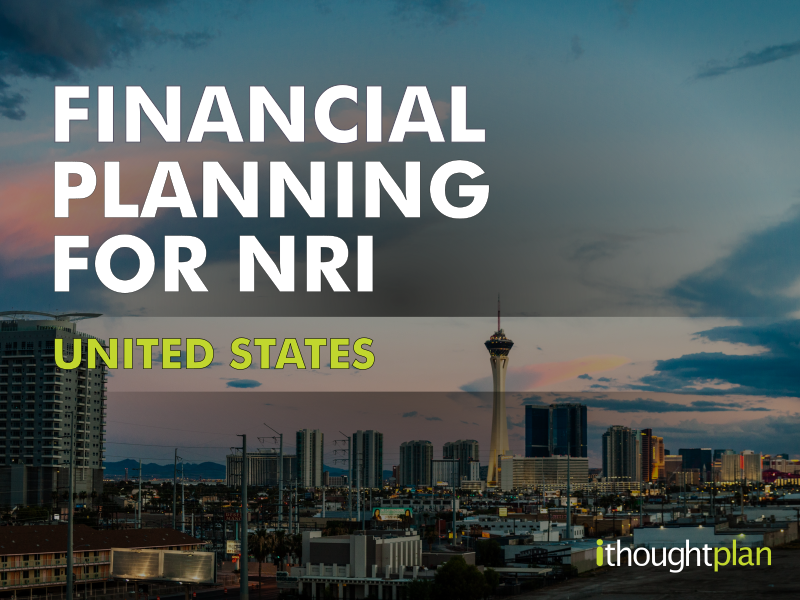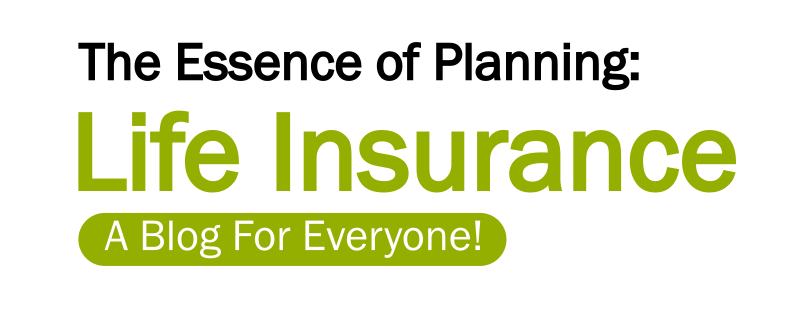
Most of us consider the NRI Status as a privilege. After all, there’s nothing like studying abroad and landing your dream job in the United States. Living in the US automatically grants you resident status. But, being a resident in the U.S. doesn’t guarantee citizenship.
So, there’s always uncertainty revolving around what you could do next. Should you switch jobs? What if you want to come back to India? How will this affect your career and your finances? If you take a break, how long can you wait until you get your next job? What if you want to start something on your own?
This blog is dedicated to NRI’s living in the United States. We cover some of the most fundamental financial planning elements like:
-
-
- Risk Management and Insurance Planning
- Investment Options For NRI
- Tax Planning For US NRI
- Retirement Planning
-
Risk Management For NRI in the US
You can manage risks effectively by preparing for contingencies, knowing whether you’re eligible for unemployment insurance, and insuring your life and health.
Create Adequate Contingency Reserve
Contingencies are part of life. You never know what expense is going to hit you when. Instead of worrying about this, we can build an emergency fund or contingency reserve. This is basically a savings fund that you can easily access meant only for emergencies. Easily access means you can park your investments in your bank account, store it in cash, or invest in a money market fund. Your contingency reserve should take care of at least 6-9 months’ expenses. Whenever your expenses increase or you draw down from your contingency reserve, remember to top it up.
Unemployment Insurance
If you lost your job during the pandemic, check if you’re eligible to claim unemployment benefits. As per the American Rescue Plan Act, the enhanced unemployment benefits have been extended until the 1st week of September 2021.
If you are not a U.S. citizen and you are applying for Unemployment Insurance (UI) benefits, the Department of Unemployment Assistance (DUA) verifies if you are legally authorized to work in the United States.
The federal government sets guidelines for coverage and eligibility, but States vary in how they determine benefits and eligibility.
Note that UI does not cover people who voluntarily leave their jobs, people looking for their first jobs, and people re-entering the labour force after leaving voluntarily. Self-employed workers, gig workers, undocumented workers, and students traditionally aren’t eligible to apply for UI benefits. Most states require unemployed workers to have worked a minimum amount of time or received a minimum amount of earnings from their previous employer to be eligible.
Term Life Insurance Policy
Did you migrate to the US because of employment opportunities? Did you know that having a job that pays you more in the US means that the financial value of your life is higher? This could change drastically if you come back to India or switch careers. Now you know why it’s important to always be adequately insured.
Life insurance protects the family from the financial loss associated with losing a loved one. Having enough life insurance means that your family’s financial security never changes. Life insurance creates a way for you to provide for your children’s education and your family’s expenses even when you’re not around.
You must choose the right life insurance product and reassess every year if it is adequate based on your Human Life Value. Term insurance is better than other insurance products for the following reasons:
Low Premium to Cover Ratio
Premiums for term plans are lower than other insurance plans since there is no investment element. This gives an advantage of the highest death benefit or life cover at a nominal premium.
Riders
Certain additional benefits like Critical Illness cover and Accidental Cover can be included with the term insurance at a nominal cost.
No Investment Element and Hidden Charges
Term insurance does not promise you returns and therefore, there are no hidden charges.
Unit Linked Insurance Plans For NRI
Given the higher investment potential, NRI’s are prime targets for ULIPs. Often, ULIPs are sold as an all-in-one solution. We discuss why ULIPs are a bad insurance option here.
Unit linked insurance policies (ULIP) are market-linked products and has a very high premium to cover ratio. This means you get very little insurance per dollar/rupee invested. ULIP also have additional charges on its policies like premium allocation charges, mortality charges, fund management charges, etc. that makes it very expensive. NRIs could invest in mutual funds for the same investment experience at a fraction of the cost.
Health Insurance
In the United States, you can purchase health insurance privately or through a social welfare program funded by the government. You may also receive insurance benefits from your employer.
Employer-sponsored Health Insurance
Most Americans with private health insurance receive it through an employer-sponsored program. If you’re uninsured, the Affordable Care Act (ACA), popularly known as “Obamacare,” gives you multiple ways of buying health insurance that meets the minimum healthcare coverage standards required by the law. If you find the cost of health insurance to be difficult to pay for, you may qualify for premium tax credits (also known as Obamacare subsidies).
Health Insurance for H1B Visa Holders
If you are a H1B visa holder, it is crucial to obtain health insurance while living and working in the United States because of the high cost of healthcare in the United States. Only after you become a resident alien for tax purposes (lived in the US for at least 183 days in a year) in 6 – 10 months after receiving your H1B visa, you will become eligible for ACA-compliant H1B health insurance, which offers long term coverage.
Public programs in the United States provide the primary source of coverage for most seniors and low-income families who meet specific eligibility requirements.
Medicare – Federal health insurance program for people who are:
-
-
- Aged 65 and above
- Under 65 with certain disabilities
- Any age with end-stage renal disease (permanent kidney failure requiring dialysis or a kidney transplant).
-
Medicaid – provides free or low-cost medical benefits to eligible:
-
-
- Adults with a low income
- Children
- Pregnant women
- People who are age 65 or over
- People with disabilities
-
Children’s Health insurance Program (CHIP)
CHIP provides health coverage to children. To be eligible, the child’s family must have an income that is too high to qualify for Medicaid and too low to afford private coverage.
Considering rising medical inflation, comprehensive health coverage is essential. Maintaining a dedicated Medical emergency reserve is an added step. If you plan to settle down in India, hold onto a health insurance policy in India. Read your policy document to understand geographical restrictions if any.
Want to know how we helped one of our clients, an NRI Doctor who wanted to retire in India. Click here!
Investment Options for NRIs in India
Most NRI’s living in the US want to invest in India. But they’re often worried about currency fluctuation, taxation, transparency, and inflation. It gets harder to vet investments in real estate when you’re not living close by. And there are enough instance of investments gone wrong to keep fear high. Yet, India has a lot to offer for US NRI. One way to make the most of these opportunities is to hire a SEBI Registered Investment Adviser.
Currency
It is getting harder to predict currency trends. We are now in a world of excess liquidity. The US Federal Reserve has printed a lot of money and intends to inject the economy with more liquidity until 2023. This kind of accommodative monetary policy may even lead to a devaluing of the US dollar. On the other hand, India hasn’t had such a deep fiscal stimulus. It remains to be seen how the RBI will handle currency fluctuations. We can no longer assume that the INR will only depreciate against the dollar.
To mitigate the risk of currency fluctuation, it is important that you have a diversified asset allocation and a global exposure. Investing in Gold, Real estate, and other commodities could provide an effective hedge.
Real Estate Investments for NRI
Buying properties in India is one of the popular investment decisions taken by NRIs.
The RBI has made buying property in India a lot easier with the FEMA rules. An NRI is eligible to acquire any immovable property in India other than agricultural land/plantation property or a farmhouse.
NRIs generally buy properties for investment purposes. It is advisable to invest in real estate in the country in which you are planning to retire.
Fixed Deposits for NRI
Broadly speaking, NRIs have three fixed deposit options in India. They are listed below:
Non-Resident External Account (NRE) Account
Deposits in an NRE account are accepted only in Indian currency. Interest rates on these accounts vary depending on the deposit amount. NRE accounts are exempt from tax in India. Neither the balance nor the interest earned on these accounts is taxable in India. It is better to verify with an accountant in the US if the tax-exempt status applies there as well.
The principal amount and the interest accumulated thereon is open to repatriation.
Non-Resident Ordinary Account (NRO) Account
NRIs, who have a source of income in India can open an NRO deposit. Rental income, dividends from investments, etc. can be deposited into these accounts.
The interest earned on an NRO account is however taxable at 30% according to the Income Tax Act.
In the case of an NRO account, the interest amount can be repatriated; however, in the case of the principal amount, you can remit only up to USD 1 million in a financial year.
Foreign Currency Non-Resident (FCNR) Account
A Foreign Currency Non-Repatriable (FCNR) deposit allows investors to deposit their money in foreign currencies that are accepted worldwide. It helps to avoid currency fluctuations. The interest rate will be determined based on the currency deposited in the account.
Other Investments Avenues for NRI
-
-
- National Pension Scheme
- Direct Equity / Portfolio Management Scheme
- Mutual Funds and ETFs
- Bonds and Non-Convertible Debentures
- Emerging Markets through Feeder Funds
-
Tax Planning for US NRI
Considering the complexity of Federal Tax Laws in the United States, Double Tax Avoidance Agreements and Indian Tax Laws, NRI’s should consider getting in touch with tax consultants both in the United States and in India to optimise their tax liability in both the countries and invest in the right tax-saving instruments in alignment with financial goals.
If the taxable income of an NRI in India exceeds Rs. 2.5 Lakhs in a financial year, or if one has long or short-term capital gains on the sale of an investment or asset, then he must file a tax return in India.
Suppose a person living in the United States receives income from a Passive Foreign Investment Company (PFIC) or recognizes gain from disposition of shares of a 1291 fund, (s)he is subject to a tax and interest regime. If (s)he owns shares of a PFIC, then (s)he is required to file IRS Form 8621. PFIC rules are something most US NRIs are unaware of. They restrict a US NRI’s investment universe.
We have helped US Based NRI’s through Financial Planning. Here is our client Mr Anish’s testimonial!
Relief from Double Taxation
The Non-resident can take relief from double taxation if India has signed the Double Taxation Avoidance Agreement (DTAA) with the country of his residence. As per the treaty, the NRIs can pay tax at either of the countries or pay the tax in both the countries and claim tax relief in the country of their residence.
Under the DTAA agreement, NRIs might also be subject to reduced tax rates in India. To avail DTAA benefits, you need to submit form 10F and obtain a tax residency certificate from the country of residence.
Given below are the tax rates applicable for various instruments in India.
| Instrument | Tax Rates |
| Dividends | 20% |
| Interest on Other Investments | 20% |
| Rental Income | 30% |
| Instrument | FD Type | Tax Rates |
| Interest on Bank Deposits | NRE | No TDS |
| NRO | 30% | |
| FCNR | No TDS |
| Instrument | LTCG rate | STCG rate |
| Gold | 20% | 30% |
| House Property | 20% | 30% |
| Equity Mutual Funds | 10% | 15% |
| Unlisted Funds | 10% without indexation | |
Retirement Planning for NRI
Retirement is the one goal common to every investor. There will be a stage in our lives where we needn’t work for money and where we can live off of our investments. Saving for retirement is a long-term commitment. The earlier you start, the more progress you can make without financial stress.
The thumb rule is to construct your retirement portfolio based on your risk profile. We recommend that a diversified retirement portfolio is built in Equity, Debt, and Gold.
Before you start retirement planning, address these 3 questions:
-
-
- When do you intend to retire?
- Which country do you want to settle down in post-retirement?
- What are your goals after retirement?
-
US Retirement System – Roth IRA vs 401(K)
If you understand the US retirement system you can optimally utilise the inherent benefits in the various retirement schemes. For example, in the United States, you have Roth IRA and 401(k). Once you understand how both these plans work, you can choose the one that will help you maximize your savings.
A 401(k) is a retirement savings plan offered by employers. A percentage of your pay or a specific amount each month can be invested in 401 (k). You make your investments with pre-tax money. You will pay taxes on any money you withdraw in retirement.
Roth IRA is an individual retirement account that offers tax-free growth and tax-free withdrawals in retirement. If you’ve owned your account for five years and you’re 59½ years or older, you will be eligible to withdraw your money when you want to, and you won’t owe any federal taxes.
| Plans | 401 (k) | Roth IRA |
| Eligibility | Retirement savings plan offered by employers | Individual retirement account (Self Employed / Small businesses that don’t have 401 (k) |
| Contributions | Investments made with pretax dollars, lowering your taxable income. | Investments are with after-tax dollars, allowing investments to grow tax-free. |
| Taxability | Withdrawals from 401 (k) are taxable | Withdrawals from Roth IRA are not taxable |
Roth IRA is a great option for people who are self-employed or who work for small businesses that don’t offer a 401(k) plan. And if you do have a 401(k), you could save extra money for retirement by opening an IRA.
The best-case scenario is to invest in both Roth IRA and 401 (k) if you meet the eligibility criteria of both plans. You will be able to take advantage of your employer’s match in 401(k), and you will get the tax benefits of a Roth IRA.
There are a lot of nuances in understanding and interpreting the Federal Tax laws.
Financial Freedom for US NRI
You’ve already made it to another country and are successful in your career. Financial freedom is within your reach. Don’t let the stress of making decisions and understanding financial products deter you. Remember you don’t have to do this journey alone. Our financial planners are NRI specialists and can make your journey to financial freedom smooth and hassle-free.




